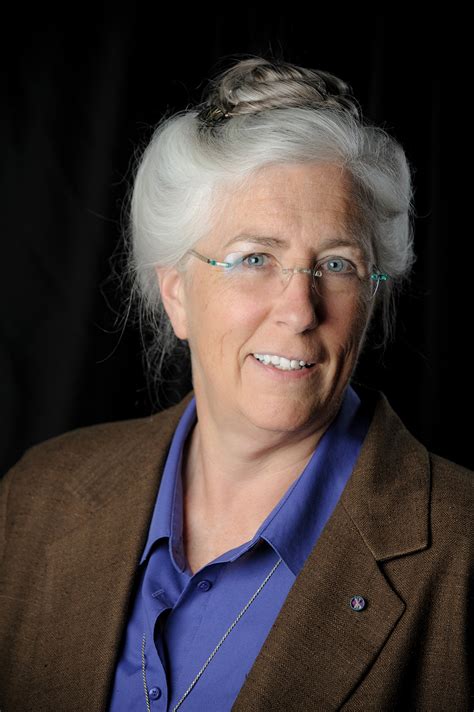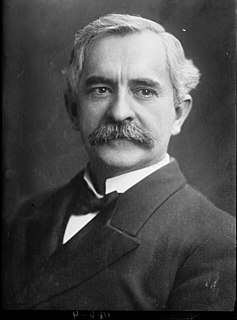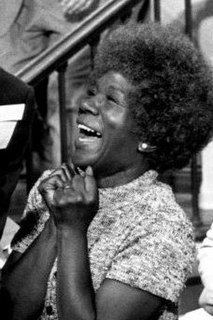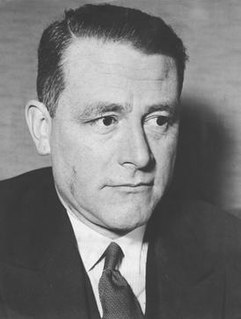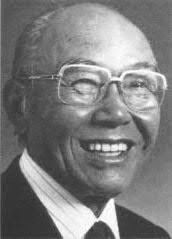A Quote by Laurie R. King
I became, in other words, more like Holmes than the man himself: brilliant, driven to a point of obsession, careless of myself, mindless of others, but without the passion and the deep-down, inbred love for the good in humanity that was the basis of his entire career. He loved the humanity that could not understand or fully accept him; I, in the midst of the same human race, became a thinking machine.
Quote Topics
Accept
Basis
Became
Brilliant
Career
Careless
Could
Deep
Down
Driven
Entire
Entire Career
Fully
Good
He Man
Him
Himself
His
Holmes
Human
Human Race
Humanity
In Other Words
Like
Love
Loved
Machine
Man
Midst
Mindless
More
Myself
Obsession
Other
Others
Passion
Point
Race
Same
Than
Thinking
Understand
Without
Words
Related Quotes
His (Lenin's)humanitarianism was a very abstract passion. It embraced humanity in general but he seems to have had little love for, or even interest in, humanity in particular. He saw the people with whom he dealt, his comrades, not as individuals but as receptacles for his ideas. On that basis, and no other, they were judged. He judged man not by their moral qualities but by their views, or rather the degree to which they accepted his.
I turned my head to the sky, to the sun, to the stars, and put a little piece of my love in every star, in the moon, in the sun, and they loved me back. And I became one with the moon and the sun and the stars, and my love kept growing and growing. And I put a little piece of my love in every human, and I became one with the whole of humanity. Wherever I go, whomever I meet, I see myself in their eyes, because I am a part of everything, because I love.
And truly it demands something god like in him who has cast off the common motives of humanity, and has ventured to trust himself for a taskmaster. High be his heart, faithful his will, clear his sight, that he may in good earnest be doctrine, society, law, to himself, that a simple purpose may be to him as strong as iron necessity is to others!
He who is himself crossed in love is able from time to time to master his passion, for he is not the creature but the creator of his own misery; and if a lover is unable to control his passion, he at least knows that he is himself to blame for his sufferings. But he who is loved without reciprocating that love is lost beyond redemption, for it is not in his power to set a limit to that other's passion, to keep it within bounds, and the strongest will is reduced to impotence in the face of another's desire.
We have accounts of the deification of men in pagan mythology. But I do not remember any account of a god becoming a man, to help man. Whoever heard of Jupiter or Mars or Minerva coming down and attempting to bear the burdens of men? The gods were willing enough to receive the gifts of men, but Christianity is unique in the fact that our God became a man with human infirmity and emptied Himself of the glory of heaven, in order that He might take upon Himself the sins, diseases and weakness of our humanity.
This is the gist of all worship: to be pure and to do good to others. He who sees Shiva in the poor, in the weak, and in the diseased, really worships Shiva. And if he sees Shiva only in the image, his worship is but preliminary. He who has served and helped one poor man seeing Shiva in him, without thinking of his caste or creed or race or anything, with him Shiva is more pleased than with the man who sees Him only in temples
Science, is the creation by humans of a particular paradigm and methodology for discovering truth and understanding reality. Hence it can never fully reflect the hidden face of humanity, its creator, in the same sense that a computer can never become fully human or know what it means to be human: however sophisticated, these machines will forever remain mere artifacts of humanity.
The concept of humanity is an especially useful ideological instrument of imperialist expansion, and in its ethical-humanitarian form it is a specific vehicle of economic imperialism. Here one is reminded of a somewhat modified expression of Proudhon’s: whoever invokes humanity wants to cheat. To confiscate the word humanity, to invoke and monopolize such a term probably has certain incalculable effects, such as denying the enemy the quality of being human and declaring him to be an outlaw of humanity; and a war can thereby be driven to the most extreme inhumanity.
People have always told tales. Long before humanity learned to write and gradually became literate, everybody told tales to everybody else and everybody listened to everybody else's tales. Before long it became clear that some of the still illiterate storytellers told more and better tales than others, that is, they could make more people believe their lies.
Man can will nothing unless he has first understood that he must count on no one but himself; that he is alone, abandoned on earth in the midst of his infinite responsibilities, without help, with no other aim than the one he sets himself, with no other destiny than the one he forges for himself on this earth.
